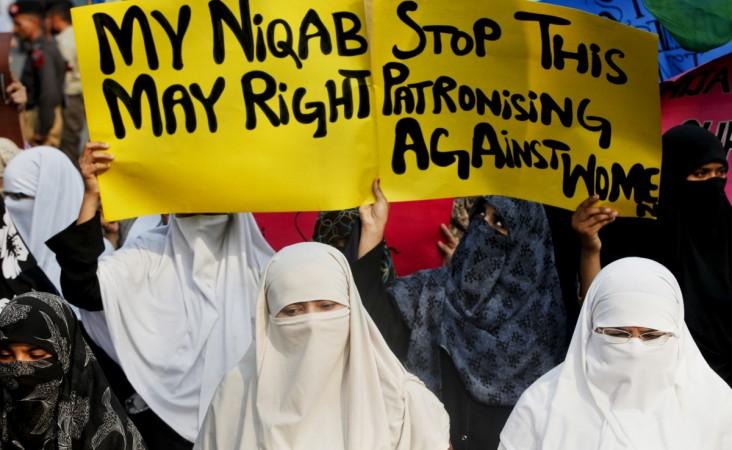
Days after Chancellor Angela Merkel said that refugees were not to be blamed for terror attacks in Germany, conservative members of the ruling coalition have said in agreement that women should be banned from wearing the face veil.
Regional interior ministers belonging to Merkel's Christian Democrats (CDU) and her Christian Social Union (CSU) allies included the disputed proposal while presenting a declaration in Berlin on tougher security measures. It also included proposals for more police and greater surveillance in public areas.
The conservative interior ministers want to ensure that women show their face while driving, when they register with authorities and at passport controls and demonstrations. They also want civil servants, teachers, students at schools and universities, judges and witnesses in court to be banned from wearing the full veil.
Merkel's comment had addressed growing security concerns following two Islamist attacks and a shooting rampage by a mentally unstable teenager. Large influx of Muslim refugees from Syria, Iraq and Afghanistan has also contributed to rising Islamophobia in Europe with many countries opting for anti-immigration policies.
The proposal also follows three French Mediterranean cities which recently banned 'Burkinis'. Interior minister Thomas de Maiziere also relied on some of the same rational of the French who argued for the ban by suggesting that it encourages women empowerment and addresses security concerns.
"We all reject the full veil – not only the burqa, but also other types of full veil that only leave the eyes visible. It has no place in our society. Baring one's face is essential for our communication, co-existence and social cohesion and that's why we're asking everyone to show their faces. We want to introduce a law to make people show their faces and that means that those who breach that law will have to feel the consequences," Maiziere was quoted as saying by Al Jazeera on Friday.
Lorenz Caffier, interior minister for the state of Mecklenburg-Vorpommern, also echoed the idea when she said that the full body veil is a barrier to integration, encourages parallel societies and suggests women are inferior.
Domestic political opposition to the ban
The debate over the CDU proposal for a ban on the face veil has divided Merkel's ruling coalition; her Social Democrat (SPD) junior coalition partners largely oppose the demands.
The CDU's calls for a partial ban were delivered while they lost support to the anti-immigrant Alternative for Germany (AfD) party, which says Islam is incompatible with the constitution and wants to ban the burqa and minarets on mosques. The AfD is expected to perform well in regional elections in Berlin and the eastern state of Mecklenburg-Vorpommern in September.
SPD labour minister Andrea Nahles has said that the calls were a sign of an "increasingly xenophobic" political discourse in Germany and could be a serious setback to efforts to integrate immigrants. Justice Minister Heiko Mass, also from the SPD, said that debates about the burqa and security should be kept separate.















